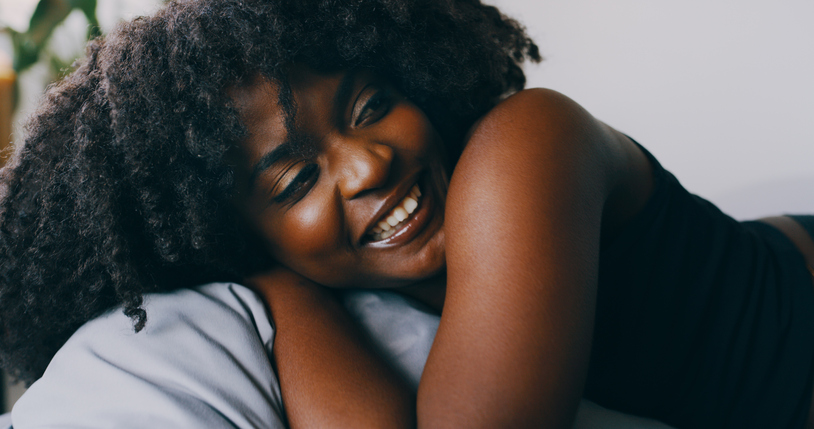‘Beautifully Well’ Approach For Black Women’s Wellness
Source: Delmaine Donson / Getty
Diabetes is a silent killer. And it has a disproportionate impact on Black people. Black people in the United States are 60% more likely than white adults to be diagnosed with diabetes. In 2018, non-Hispanic Black people were twice as likely as non-Hispanic white people to die from diabetes.
For Black people, diabetes is a pandemic unto itself. It is a chronic illness that shortens life cycles and devastates families. With the potential to impact multiple organs simultaneously – eyesight, kidneys, and heart – diabetes is one of the most taxing and serious health ailments. If we are interested in promoting overall health in the Black community, we should focus on helping Black people prevent or better manage diabetes.
While I knew this, it wasn’t until I faced my own health challenges that I had a paradigm shift in how I thought about and approached diabetes. I started out on the right path, health-wise. I have always loved the idea of fitness. My grandparents had gardens. As a child, I was surrounded by fresh fruit and vegetables. I also loved to work out. When I stumbled into Zumba in May 2011, it was all about the side hustle until I saw its impact on women’s health. In addition to loving its effects on me and other women, teaching the class put me in a space to learn more about nutrition and behavior change.
Not long after completing my Master Health Coaching Certification, my own health was compromised – I was diagnosed with colon cancer. Additionally, I began experiencing female-related health issues that zapped my motivation and energy.
Things that were once natural, such as eating right and exercising, no longer came as easy. Eventually, I was diagnosed with pre-diabetes. My life was spiraling out of control, and then I was fired from my job three weeks post-operation. What initially felt like a nightmare turned into an opportunity.
As I recovered from surgery and job loss, I birthed the concept “Beautifully Well.” I intended to take the overwhelm out of the health journey with Beautifully Well. My goal was to meet women where they are by first reducing stress, then motivating them to implement small healthy changes.
In September 2019, I opened a holistic wellness spa, Amani Nicol. Although I had to close the business temporarily due to COVID-19, I couldn’t turn my back on the women of color who needed support in managing their stress and health. Thanks to grants, including from the Revolve Fund, I could bounce back even as the pandemic led to massive, small-business closures.
Today, I consider my company the “Starbucks” of lifestyle medicine. It encourages a holistic approach to diabetes prevention and management, understanding that the biggest barrier to wellness is not education but rather stress. It is not enough to teach people the dangers of diabetes if we aren’t addressing the stress in their lives. This is particularly true for Black women.
Unfortunately, Black women have a larger and more severe stress response. They have underlying stressors and unique conditions specific to our culture that add to the routine challenges we face in life. Coupled with lifestyle changes passed down from generation to generation, Black women face a unique position. A lot of the foods people love and how they prepare them also put them at a higher risk for preventable illnesses. My company is focused on food but also on the undercurrent of stress.
My observations have been borne out by research as well. The Jackson Heart Study was completed by cardiologists and looked at the stress factors in Black women’s lives. The study revealed that our reaction to stress impacts our metabolic rate. The way our bodies respond to stress increases our risk factors for many illnesses, including diabetes.
Through Amani Nicol, I have developed a space where we understand that the barrier to optimal health is bigger than education – it is stress. We tap into underserved and under-resourced communities and women who are challenged – whether they have financial resources or not. We have developed programs for under-resourced and underserved communities.
For instance, we are a social enterprise that provides diabetes prevention to the deaf community. We chose the deaf community after the Maryland Department of Health requested proposals for expanding efforts to reach at-risk communities.
While we were already working with Hispanic and Black communities, we decided to expand and serve the deaf community as our central goal was to help under-served communities. There are no other CDC Recognized Diabetes Prevention providers with a program specifically designed for them. My company provides programming with certified American Sign Language Coaches and views our outreach to this community as mission-critical.
What is most remarkable about our comprehensive approach to diabetes medicine is that it creates space to talk openly about the deep impacts of diabetes. If my company and I can prevent the illness and help women who have it prolong the complications, we will have fulfilled our mission.
Most important, we understand that when people manage stress and feel better, they do better. That’s self-care meets healthcare, and we call it “Beautifully Well.”
Nik Sweeney founded the wellness spa Amani Nichol in the Baltimore region.
SEE ALSO:

